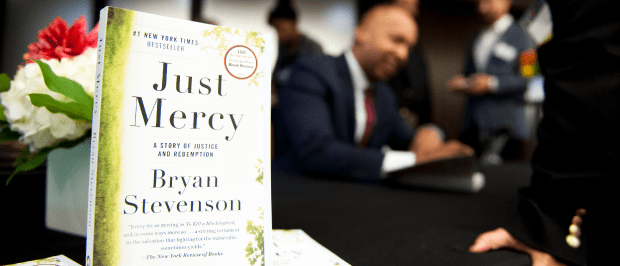
This month, as we celebrate and honor Black History Month, we at Education Pioneers want to hear from you. We also want to share some resources with our community.
In the U.S., when we talk about our nation’s history, we tend to highlight some stories and people, and ignore others, especially those stories or people that make us uncomfortable or question certain theories like racial equality.
But as Bryan Stevenson, Founder and Executive Director of the Equal Justice Initiative and a lauded civil rights attorney, pointed out during his keynote address at our national conference last year, it’s imperative that we talk about the aspects of our history that are often omitted — including our nation’s legacy of racism, racial inequality, and racial terror — if we want to heal.
“I hear people talking about the civil rights movement and it sounds like a three-day carnival. On day one, Rosa Parks did not give up her seat on the bus. On day two, Martin Luther King led a march in Washington. And on day three, we just changed all the laws,” said Mr. Stevenson.
It’s hard to sit with our nation’s legacy of racial terror. It’s hard to face the amount of work that still needs to be done. But if we are to heal and build a truly equal society that is just for all people, including schools that serve all students equitably, we must.

As we outlined in an EP blog post last month, Mr. Stevenson offers four specific ways that we can move toward justice: get proximate; change the narrative; stay hopeful; be uncomfortable.
>> Read “Four Ways to Help Bend the Moral Arc of the Universe toward Justice” on the EP blog.
And to change the narrative of racial difference, Mr. Stevenson said, we must shine a light on our history in a lasting way.
In the Equal Justice Initiative (EJI) publication “A History of Racial Injustice 2017 Calendar” (you can request a copy of here for free, but donations are welcome), EJI writes: “a deeper engagement with our nation’s history of racial injustice is important to addressing present-day questions of social justice and equality.”
In the calendar, on nearly every day of the year, EJI highlights incidences of racial injustice and terror from the 18th century through the present. For instance, on this day (February 28) in 1942, a mob of more than 1,000 white people rioted outside a public housing project in Detroit, MI to prevent black families from moving in.
Additionally, in the calendar, among EJI’s many calls for changing the narrative – from de-romanticizing American slavery to ending anti-immigrant rhetoric – they also call for “healing from the legacy of lynching.” Through their Community Remembrance Project, EJI collects soil from the sites of more than 4,000 documented lynchings to create a “tangible representation of the lives lost and widespread terror inflicted.”
EJI also places historical markers at lynching sites to publicly acknowledge mass violence. This acknowledgement, EJI writes, “is essential not only for victims and survivors, but also for perpetrators and bystanders who suffer from trauma related to their participation in systematic violence and dehumanization.”
Some questions for you to reflect on: How does our nation’s history of racial injustice and terror show up in our schools today? In your own education, how was that history taught to you? If you work with students, how do you address our nation’s history? Moving forward, what can or should we do across the education sector to address our nation’s history and ensure we’re building equitable schools?
BOOK GIVEAWAY: JUST MERCY BY BRYAN STEVENSON

We want to share Bryan Stevenson’s work with our EP community, and this month, we will be giving away copies of his book, Just Mercy: A Story of Justice and Redemption.
If you are interested in receiving a copy – which our EP staff found to be a powerful, important read – share with us how you honor and celebrate Black History Month.
You are welcome to post across our social channels, and each post will be considered an entry for the drawing for a book. We’ll draw winners randomly from those who post on our channels or complete the form above, and we’ll send the winners a copy of Just Mercy.
Thank you for helping us commemorate and honor Black History Month.
